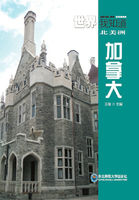"Do not rise, my child," said the old lady imperatively; "weak and ill as I am myself, I wished to come and tell you my feelings about what is happening. I respect you as the purest, the most religious and excellent girl in the Gatinais; and I think you worthy to make the happiness of a gentleman."
At first poor Ursula was unable to answer; she took the withered hands of Savinien's mother and kissed them.
"Ah, madame," she said in a faltering voice, "I should never have had the boldness to think of rising above my condition if I had not been encouraged by promises; my only claim was that of an affection without bounds; but now they have found the means to separate me from him I love,--they have made me unworthy of him. Never!" she cried, with a ring in her voice which painfully affected those about her, "never will I consent to give to any man a degraded hand, a stained reputation. I loved too well,--yes, I can admit it in my present condition,--I love a creature almost as I love God, and God--"
"Hush, my child! do not calumniate God. Come, my daughter," said the old lady, making an effort, "do not exaggerate the harm done by an infamous joke in which no one believes. I give you my word, you will live and you shall be happy."
"We shall be happy!" cried Savinien, kneeling beside Ursula and kissing her hand; "my mother has called you her daughter."
"Enough, enough," said the doctor feeling his patient's pulse; "do not kill her with joy."
At that moment Goupil, who found the street door ajar, opened that of the little salon, and showed his hideous face blazing with thoughts of vengeance which had crowded into his mind as he hurried along.
"Monsieur de Portenduere," he said, in a voice like the hissing of a viper forced from its hole.
"What do you want?" said Savinien, rising from his knees.
"I have a word to say to you."
Savinien left the room, and Goupil took him into the little courtyard.
"Swear to me by Ursula's life, by your honor as a gentleman, to do by me as if I had never told you what I am about to tell. Do this, and I will reveal to you the cause of the persecutions directed against Mademoiselle Mirouet."
"Can I put a stop to them?"
"Yes."
"Can I avenge them?"
"On their author, yes--on his tool, no."
"Why not?"
"Because--I am the tool."
Savinien turned pale.
"I have just seen Ursula--" said Goupil.
"Ursula?" said the lover, looking fixedly at the clerk.
"Mademoiselle Mirouet," continued Goupil, made respectful by Savinien's tone; "and I would undo with my blood the wrong that has been done; I repent of it. If you were to kill me, in a duel or otherwise, what good would my blood do you? can you drink it? At this moment it would poison you."
The cold reasoning of the man, together with a feeling of eager curiosity, calmed Savinien's anger. He fixed his eyes on Goupil with a look which made that moral deformity writhe.
"Who set you at this work?" said the young man.
"Will you swear?"
"What,--to do you no harm?"
"I wish that you and Mademoiselle Mirouet should not forgive me."
"She will forgive you,--I, never!"
"But at least you will forget?"
What terrible power the reason has when it is used to further self-interest. Here were two men, longing to tear one another in pieces, standing in that courtyard within two inches of each other, compelled to talk together and united by a single sentiment.
"I will forgive you, but I shall not forget."
"The agreement is off," said Goupil coldly. Savinien lost patience. He applied a blow upon the man's face which echoed through the courtyard and nearly knocked him down, making Savinien himself stagger.
"It is only what I deserve," said Goupil, "for committing such a folly. I thought you more noble than you are. You have abused the advantage I gave you. You are in my power now," he added with a look of hatred.
"You are a murderer!" said Savinien.
"No more than a dagger is a murderer."
"I beg your pardon," said Savinien.
"Are you revenged enough?" said Goupil, with ferocious irony; "will you stop here?"
"Reciprocal pardon and forgetfulness," replied Savinien.
"Give me your hand," said the clerk, holding out his own.
"It is yours," said Savinien, swallowing the shame for Ursula's sake.
"Now speak; who made you do this thing?"
Goupil looked into the scales as it were; on one side was Savinien's blow, on the other his hatred against Minoret. For a second he was undecided; then a voice said to him: "You will be notary!" and he answered:--
"Pardon and forgetfulness? Yes, on both sides, monsieur--"
"Who is persecuting Ursula?" persisted Savinien.
"Minoret. He would have liked to see her buried. Why? I can't tell you that; but we might find out the reason. Don't mix me up in all this; I could do nothing to help you if the others distrusted me. Instead of annoying Ursula I will defend her; instead of serving Minoret I will try to defeat his schemes. I live only to ruin him, to destroy him--
I'll crush him under foot, I'll dance on his carcass, I'll make his bones into dominoes! To-morrow, every wall in Nemours and Fontainebleau and Rouvre shall blaze with the letters, 'Minoret is a thief!' Yes, I'll burst him like a gun--There! we're allies now by the imprudence of that outbreak! If you choose I'll beg Mademoiselle Mirouet's pardon and tell her I curse the madness which impelled me to injure her. It may do her good; the abbe and the justice are both there; but Monsieur Bongrand must promise on his honor not to injure my career. I have a career now."
"Wait a minute;" said Savinien, bewildered by the revelation.
"Ursula, my child," he said, returning to the salon, "the author of all your troubles is ashamed of his work; he repents and wishes to ask your pardon in presence of these gentlemen, on condition that all be forgotten."
"What! Goupil?" cried the abbe, the justice, and the doctor, all together.
"Keep his secret," said Ursula, putting a finger on her lips.
Goupil heard the words, saw the gesture, and was touched.















